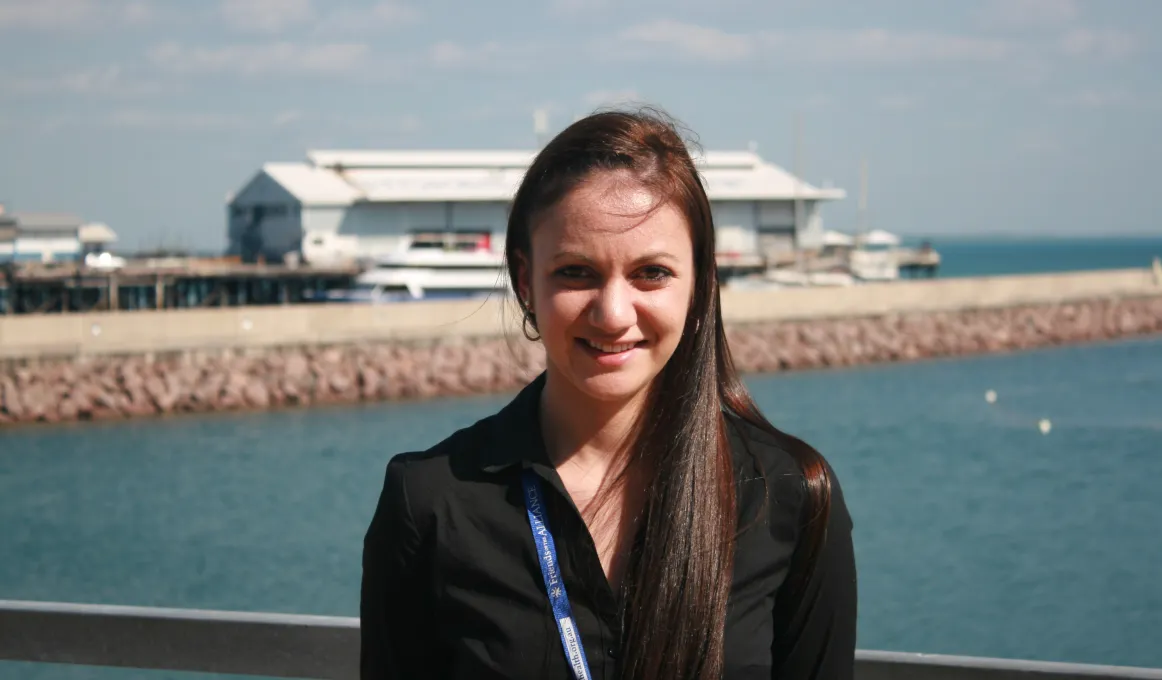Ekala working to close the health gap

Ekala French is a young Wiradjuri woman from central New South Wales who works as an Aboriginal Health Worker with the Orange Aboriginal Medical Service (OAMS), and has played a key role in a ground breaking health programme.
Like many other Indigenous health workers around Australia, Ekala French is making a real difference to the health and wellbeing of Aboriginal people in her community. And now, having played a key role in a ground breaking health programme, she is helping to close the health gap throughout the country.
Ekala, a Wiradjuri woman from central New South Wales, is an Aboriginal Health Worker with the Orange Aboriginal Medical Service (OAMS). After finishing high school Ekala gained an OAMS traineeship, working to address the health issues affecting Aboriginal people in the Orange region. Ekala then had an opportunity to participate in a programme studying the plausibility of a population health approach in the area, which she jumped at.
Ekala says that population health addresses the health of the whole community rather than just the individual.
“By looking at the health issues facing a community, we can better identify the gaps in the services offered and how we can improve our services, particularly in primary health prevention,” Ekala said.
The programme, run by OAMS in conjunction with the University of Sydney and the University of Western Sydney, also looked at the gap between mainstream and Aboriginal health care, especially in making medical services more culturally appropriate for patients.
“Many Aboriginal people will delay visiting a doctor until they are ill, rather than having regular check-ups,” Ekala said.
“We need to make Aboriginal people more comfortable accessing health care; it needs to be culturally appropriate, more holistic and less formal,” she said.
While other Aboriginal medical services around the country are studying the report to learn how to help their own patients, Ekala is already planning the next step of her career in Indigenous health.
“I have a passion about Aboriginal health and I’m looking to become a nurse,” Ekala said.
“Health workers are important to a community’s wellbeing but as a nurse I’ll have a greater opportunity to work with my community and offer services health workers can’t provide.”
Find out more
The Australian Government is committed to closing the gap and achieving health equality between Indigenous and non-Indigenous Australians. A Strong Aboriginal and Torres Strait Islander Health Workforce is the key for this to happen.
As a result, the Australian Government has made a $3.1 billion commitment to Indigenous health funding over four years, a crucial part of which is supporting the role of Indigenous health workers.
For more information on what the Australian Government is doing to tackle Indigenous health issues, visit Health topic quickview: Aboriginal and Torres Strait Islander Health.